Short-term lets licensing scheme comes into force
- Published
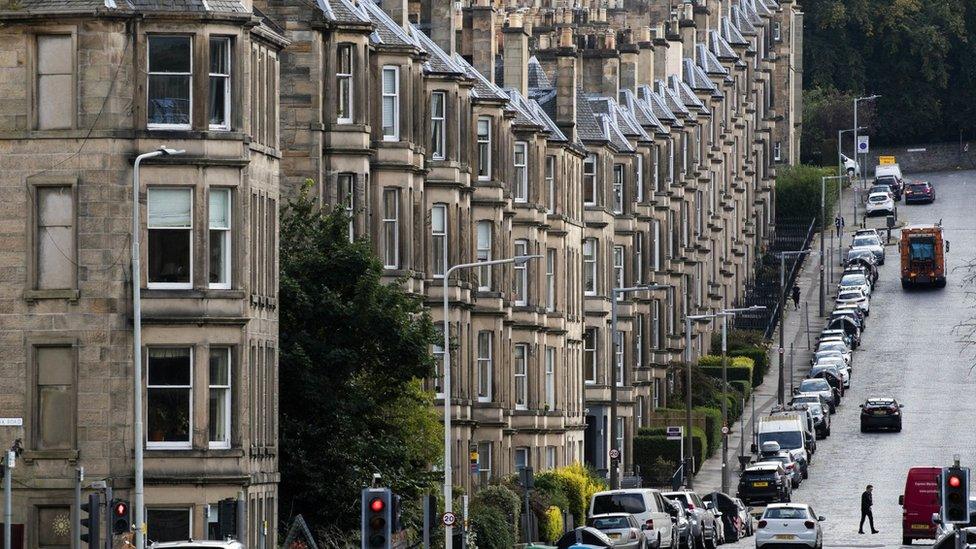
A new law requiring the operators of short-term lets to have a licence has come into force across Scotland.
Anyone providing short-term let (STL) accommodation must now have a licence or face a ban and fine of up to £2,500.
The changes were brought in to help to tackle problems with housing demand and anti-social behaviour, especially in STL hot spots such as Edinburgh.
But critics say the legislation is flawed and a threat to Scotland's tourism sector and wider economy.
Bed and breakfasts, homes rented out on platforms such as Airbnb and the short-term renting out of spare rooms are all affected by the changes.
Anyone who has not now applied for a licence but continues to operate can be fined and banned from applying to join the scheme for a year.
The Scottish government said it had listened to feedback from the sector, and that the deadline had already been pushed back by six months.
Housing Minister Paul McLennan added: "The introduction of licensing safeguards the role short-term let accommodation plays in our economy by providing assurance to guests on safety and quality, such as gas certificate compliance and suitability of electrical equipment."
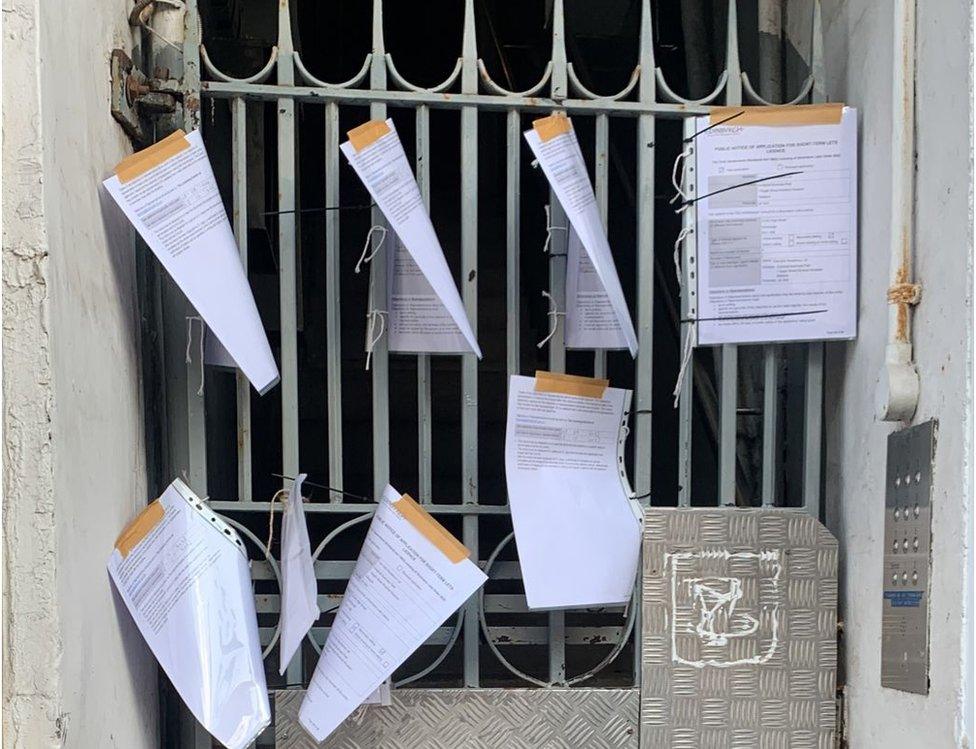
Applications for licences could be seen attached to Edinburgh doorways as the new rules came into force
Although the new STL law applies nationwide, licences are managed by councils and licence fees will vary depending on the local authority, size of property and type of let.
This means some councils are asking for architects' drawings of each rental unit while in Edinburgh, full planning permission for a change of use is also required.
This has put some people off applying for licences.
The Scottish Bed and Breakfast Association claimed in August that two-thirds of B&B owners were considering shutting their doors over STL restrictions.
Andy Fenner, of the UK Short Term Accommodation Association, said the industry had been left facing a "really scary situation".
He said: "This has been a lesson on how not to pass legislation, it has been a unmitigated disaster and I don't think anyone involved could possibly say anything else.
"Our industry is growing because the demand is there, people visiting Scotland want to stay in holiday lets.
"These changes mean owners are spending large sums of money, sometimes thousands of pounds, on obtaining licences for businesses that in many cases have been there for years."
Research published last year by the Association of Scotland's Self-Caterers claimed that the estimated average licence fee in Scotland would be £514 per property for three years.

'It is no longer a place to live'
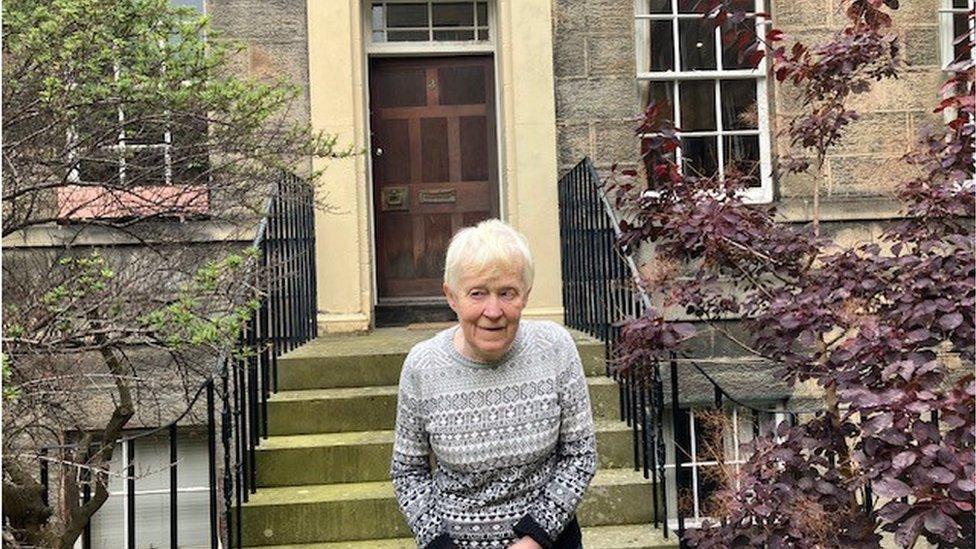
Elspeth Wills has lived in the heart of Edinburgh's Old Town for more than 50 years
Edinburgh has long been the epicentre of the STL debate and one resident who welcomes the new clampdown "with open arms" is Elspeth Wills.
Elspeth has lived just off the city's Grassmarket for more than 50 years and says the "hollowing out" of the Old Town has been fuelled by STLs.
"It is now a tourist area, it is no longer a place to live and it didn't used to be that way," she says.
"There are now whole stairs in the Grassmarket where there are no owners or tenants, it is all STLs.
"We don't have a community any more, people are moving out because they can't stand it any more - you don't know your neighbours any more, you don't know who is coming and going."
'The scheme is onerous'
Less than half a mile away from Elspeth is an STL business run by Marc Hughes who sub lets flats in the high-end Quartermile development.
Marc says he is not against the principle of licensing but has grave concerns about the new scheme and the fact that in Edinburgh it is combined with a "control zone" for STLs, which imposes strict planning and licensing rules on the sector.
He says: "This system was brought into place mainly to make sure people were adhering to mandatory health and safety conditions and that could have been achieved without adding in planning.
"It was intended to regulate not eradicate but everyone in the industry I've spoken to feels that their business might not survive.
"The scheme is onerous - nobody is against licensing, it could be a good thing if it is done in the right manner, but this is going to be a lose lose for everybody."

Former Green MSP Andy Wightman, who has long championed STL regulation, said the previous setup that required no licences was "open to shady operators".
He added: "I think it is vital we know who is operating a short-term let in an area and previously we simply just did not know.
"Many people who are not applying for licences and are complaining have operated without planning consent and shouldn't be operating without that consent, so that is a bit of a shock to many operators but it is a necessary shakeout in the sector I think."
Mr Wightman said he opposed the inclusion of B&Bs in the scheme.

Who is affected by the new scheme?
There are four types of licence covering different types of short let.
Home sharing: For people who rent out all or part of their home while still living there.
Home letting: Letting out all or part of your home while you are not there, such as when you are on holiday.
Secondary letting: Letting a property which you own but do not stay in.
Home letting and home sharing: This is when you let our part or all of your own home both while you are living there and also when you are not.
The scheme also covers commercial accommodation including B&Bs, holiday caravans, self-catering lets, and managed apartments.
- Published19 January 2022
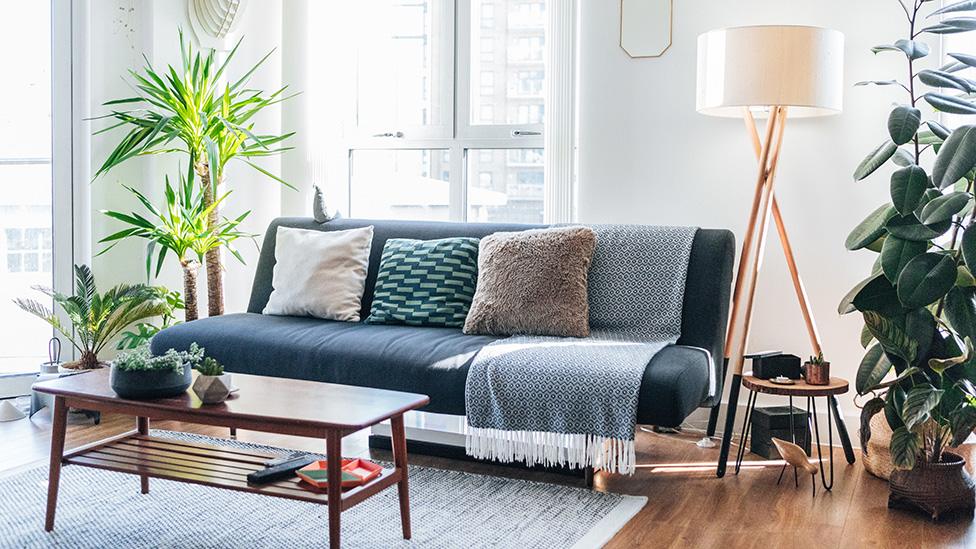
- Published25 August 2023
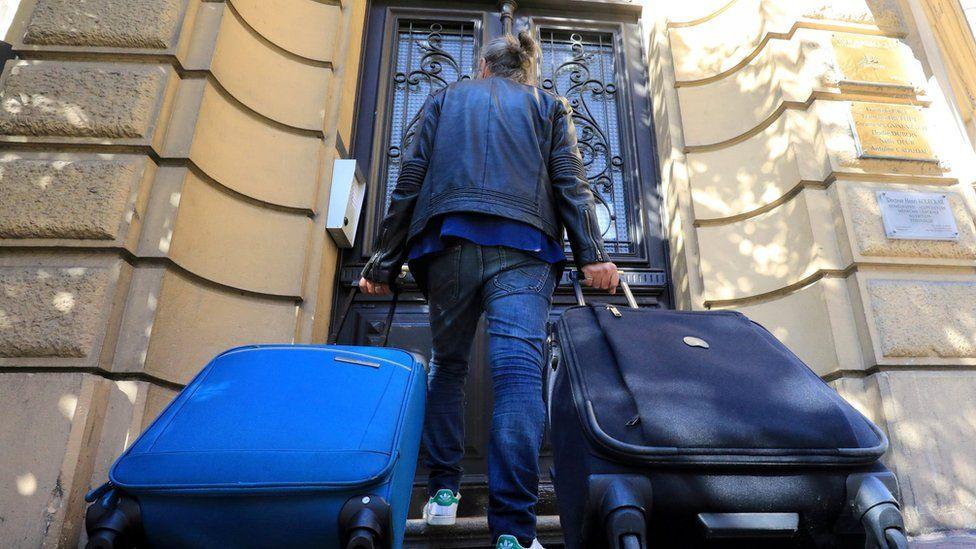
- Published28 August 2023
